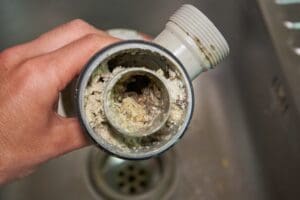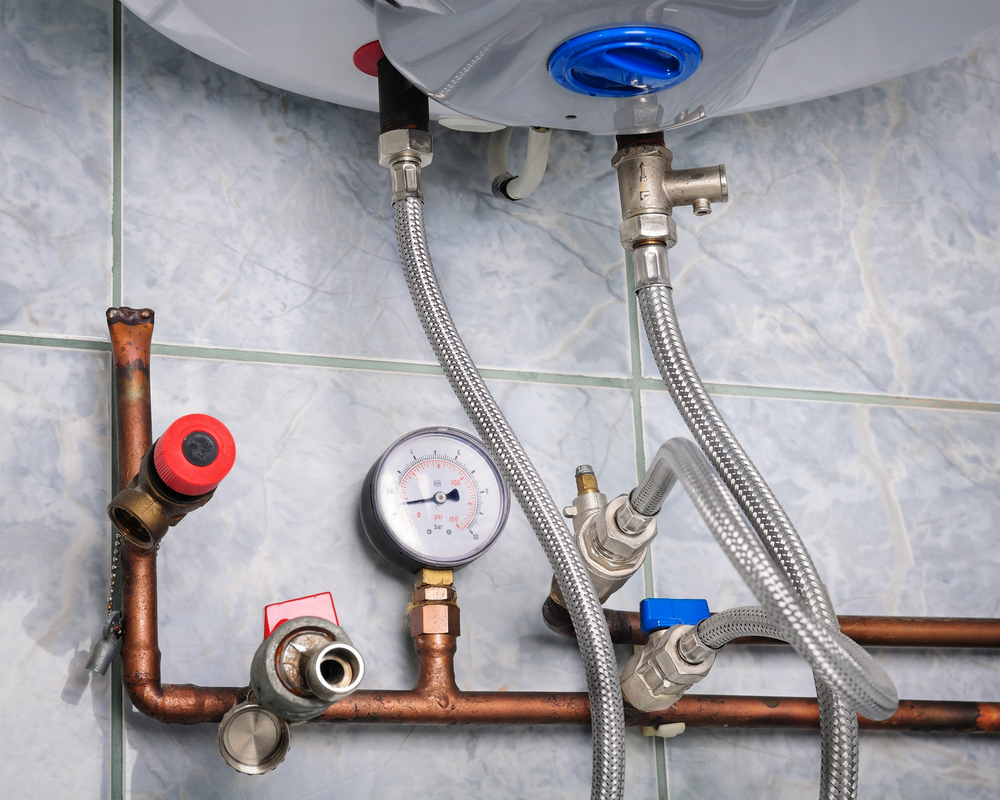Quick Methods for Solving Low Water Pressure in Your Home
Quick Methods for Solving Low Water Pressure in Your Home
Blog Article
Just how do you actually feel in relation to Low Water Pressure in the House??

Low water pressure in your home can be a discouraging issue, affecting everything from showering to cleaning recipes. If you're experiencing weak water circulation, there are several possible reasons and solutions to discover. In this guide, we'll discuss typical reasons for low tide pressure and useful actions to address the issue efficiently.
Intro to Low Water Stress
Low tide pressure takes place when the flow of water from your taps, showers, and various other fixtures is weaker than normal. This can make daily jobs a lot more difficult and much less reliable. Understanding the sources of low water pressure is essential to locating the ideal service.
Typical Sources Of Low Water Stress
Pipeline Obstructions
With time, pipelines can become clogged with natural resource, debris, or debris, limiting the circulation of water. This is a typical problem in older homes with galvanized steel pipes.
Deterioration
Corrosion within pipelines can cause leaks and reduced water stress. Corrosion build-up can constrict water flow, specifically in aging plumbing systems.
Faulty Pressure Regulators
Stress regulators are responsible for keeping consistent water stress in your house. If they malfunction, it can result in low water pressure or uneven flow throughout your house.
Local Water System Issues
Sometimes, the trouble lies outside your home. Metropolitan water supply problems, such as main line leakages or maintenance job, can momentarily minimize water pressure in your area.
Just How to Identify Low Tide Pressure
Inspecting Taps and Fixtures
Start by evaluating the water stress at various faucets and components throughout your home. If the issue is separated to certain areas, it might show local troubles.
Inspecting Pipelines
Inspect visible pipelines for indicators of leakages, rust, or obstructions. Take notice of any kind of uncommon audios, such as knocking or rattling pipelines, which might show concerns within the plumbing system.
Consulting with a Plumber
If you're not able to pinpoint the reason for low tide pressure, consider employing a professional plumber to conduct a comprehensive examination. They can recognize underlying problems and advise appropriate services.
Do It Yourself Solutions to Deal With Low Water Pressure
Cleaning Aerators and Showerheads
Mineral deposits can collect in aerators and showerheads, lowering water flow. Get rid of and clean these elements consistently to boost water stress.
Flushing Hot Water Heater
Sediment buildup in the water heater can limit circulation and lower efficiency. Flushing the container occasionally assists eliminate debris and keep ideal efficiency.
Examining Pressure Regulatory Authority
Ensure that the stress regulator is working correctly. Adjusting or changing the regulator can assist bring back appropriate water stress throughout your home.
Clearing Up Clogs in Piping
For small clogs, try utilizing a plumbing snake or chemical drain cleaner to clear obstructions in pipelines. Beware when using chemicals and follow safety guidelines.
When to Call a Professional Plumber
If DIY initiatives stop working to resolve the concern or if you think substantial plumbing troubles, it's ideal to look for help from a licensed plumber. They have the proficiency and devices to address complex concerns securely and properly.
Preventive Measures to Maintain Water Stress
Routine Maintenance
Schedule regular upkeep for your plumbing system to stop problems such as rust, leakages, and clogs. Addressing minor troubles early can aid stay clear of more significant repairs later.
Mounting a Stress Booster
Consider mounting a pressure booster pump to improve water pressure in areas with continually low flow. This can be particularly beneficial for multi-story homes or residential or commercial properties with high-demand components.
Surveillance Water Use
Bear in mind water use practices and prevent overtaxing the plumbing system. Basic adjustments, such as astonishing showers and laundry loads, can assist keep adequate water pressure.
Final thought
Managing low water pressure can be frustrating, however identifying the underlying causes and applying appropriate services can recover optimal flow throughout your home. Whether it's cleaning aerators, checking pipelines, or talking to a plumber, taking positive steps can guarantee a consistent supply of water for your daily requirements.
HOW TO FIX LOW WATER PRESSURE IN YOUR HOUSE (EXPERT GUIDE)
The morning shower lacking any real pressure? Bathtub taking hours to fill? Or maybe you’re dissatisfied with the inadequate performance from your combi boiler?
Then you, like millions of others across the UK, might be experiencing low water pressure.
Fortunately, the good news is that you don’t have to continue living this way. The cause of low water pressure in the home is often quite simple, and you may not even require a plumber to fix the problem.
What causes low water pressure in the house?
If you are experiencing issues with water pressure throughout your home, then you may have one of the problems outlined below.
Most of these problems can be fixed quite easily, but for others, you may need to contact a plumber.
Obstructed Shutoff Valve
If you’ve just bought a new home or recently had building work conducted on your property, there is a chance that your water valves were not fully opened.
If the water valve is partially closed, then you may be restricting the amount of water entering your home. To fix this, simply ensure the valve is fully open.
If the valve appears fully open but you are still encountering reduced water pressure, then the valve may be broken. If this is the case, do not under any circumstances try to fix it without proper training.
Often found under your kitchen sink, a water valve will usually look like a bright yellow handle.
Again, if you believe the water valve is broken, contact a plumber immediately.
Leaks in Your Water Pipes
Leaks are the worst-case scenario when it comes to low water pressure.
If the water pipes are damaged, then this will cause low water pressure, as not all the water will make it to your taps.
After you’ve checked to see if the valve is fully open, you can conduct a leak check of your home. Now, this may seem scary, but it is actually quite simple.
Clogged Water Pipes
Clogged water pipes are one of the most common causes of low water pressure.
These clogs usually build-up when your home is supplied water via iron pipes. Iron is particularly vulnerable to rusting which can then break off and cause an obstruction within your system. You also face the problem of things like dirt, gravel or sand entering creating mineral deposits which further block water flowing from the mains water supply.
Unfortunately, if you suspect that clogged pipes may be restricting your water supply, then you will need to contact a plumber.
In this situation, you will either need to have your pipes removed and cleaned or in more severe cases, you could require a new set of water pipes.
Designer Taps
Designer taps look fantastic, but are they built to be efficient in your plumbing system? Modern taps are built for modern homes and they often have lower flow rates that are specifically designed for use within high-pressure systems.
Install a Water Pressure Booster Pump
If the issue is simply that the mains water pressure supply is too low, the simplest fix is to invest in a booster pump. Found in homes of all shapes and sizes, booster pumps are a relatively cheap option to add extra pressure to your home.
Designed to increase water pressure by passing water into the pump from your mains supply and then ejecting it into your home water system at a higher pressure, a booster pump is a truly simple and effective solution to increasing water pressure.
https://www.anchorpumps.com/blog/the-plumbers-guide-to-fixing-low-water-pressure/

HOW TO FIX LOW WATER PRESSURE IN YOUR HOUSE (EXPERT GUIDE)
The morning shower lacking any real pressure? Bathtub taking hours to fill? Or maybe you’re dissatisfied with the inadequate performance from your combi boiler?
Then you, like millions of others across the UK, might be experiencing low water pressure.
Fortunately, the good news is that you don’t have to continue living this way. The cause of low water pressure in the home is often quite simple, and you may not even require a plumber to fix the problem.
What causes low water pressure in the house?
If you are experiencing issues with water pressure throughout your home, then you may have one of the problems outlined below.
Most of these problems can be fixed quite easily, but for others, you may need to contact a plumber.
Obstructed Shutoff Valve
If you’ve just bought a new home or recently had building work conducted on your property, there is a chance that your water valves were not fully opened.
If the water valve is partially closed, then you may be restricting the amount of water entering your home. To fix this, simply ensure the valve is fully open.
If the valve appears fully open but you are still encountering reduced water pressure, then the valve may be broken. If this is the case, do not under any circumstances try to fix it without proper training.
Often found under your kitchen sink, a water valve will usually look like a bright yellow handle.
Again, if you believe the water valve is broken, contact a plumber immediately.
Leaks in Your Water Pipes
Leaks are the worst-case scenario when it comes to low water pressure.
If the water pipes are damaged, then this will cause low water pressure, as not all the water will make it to your taps.
After you’ve checked to see if the valve is fully open, you can conduct a leak check of your home. Now, this may seem scary, but it is actually quite simple.
Clogged Water Pipes
Clogged water pipes are one of the most common causes of low water pressure.
These clogs usually build-up when your home is supplied water via iron pipes. Iron is particularly vulnerable to rusting which can then break off and cause an obstruction within your system. You also face the problem of things like dirt, gravel or sand entering creating mineral deposits which further block water flowing from the mains water supply.
Unfortunately, if you suspect that clogged pipes may be restricting your water supply, then you will need to contact a plumber.
In this situation, you will either need to have your pipes removed and cleaned or in more severe cases, you could require a new set of water pipes.
Designer Taps
Designer taps look fantastic, but are they built to be efficient in your plumbing system? Modern taps are built for modern homes and they often have lower flow rates that are specifically designed for use within high-pressure systems.
Install a Water Pressure Booster Pump
If the issue is simply that the mains water pressure supply is too low, the simplest fix is to invest in a booster pump. Found in homes of all shapes and sizes, booster pumps are a relatively cheap option to add extra pressure to your home.
Designed to increase water pressure by passing water into the pump from your mains supply and then ejecting it into your home water system at a higher pressure, a booster pump is a truly simple and effective solution to increasing water pressure.
https://www.anchorpumps.com/blog/the-plumbers-guide-to-fixing-low-water-pressure/
I was shown that report on 9 Reasons for Low Water Pressure in Your House from someone on our other site. Sharing is good. You won't know, you might be doing someone a favor. Kudos for being here. Revisit us soon.
Call Report this page